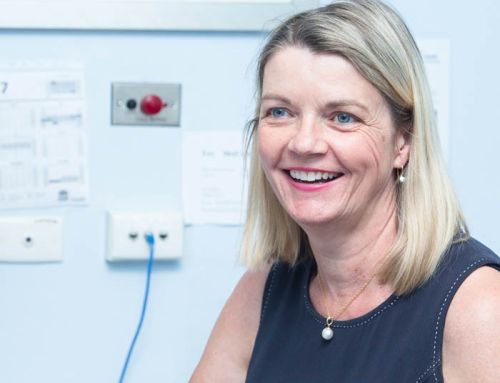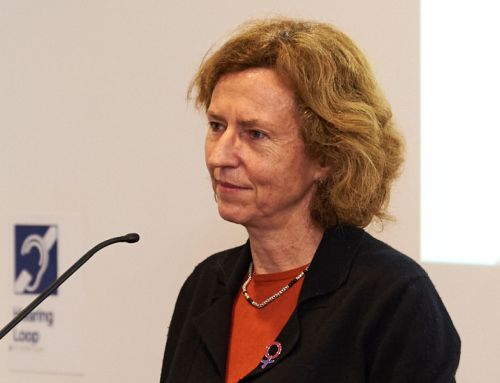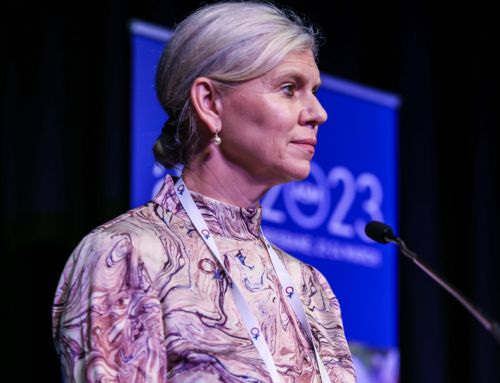ANZGOG’s newest study, EPOCH is open for recruitment after activating its first site, Peter MacCallum Cancer Centre.
Led by Principal Investigator, Professor Clare Scott AM, the study aims to recruit 90 participants from Australia and around the globe with the initial exploratory Part A of the EPOCH trial recruiting 30 participants across six sites, four in Australia, one in the UK and one in Canada. Part B aims to recruit the remaining 60 participants globally.
Aims of EPOCH
EPOCH is a Phase II open label international clinical trial, which seeks to improve outcomes in women with tubo-ovarian or uterine carcinosarcoma by providing patients with access to a treatment that offers a greater degree of clinical benefit compared to currently available standard chemotherapeutic options. This is a significant opportunity for patients who would otherwise not have access to such treatment options.
The study’s primary objective is to determine the efficacy of eribulin alone and in combination with pembrolizumab, in patients with carcinosarcoma of the uterus or fallopian tubes and ovaries in first or second relapse. The clinical benefit rate (CBR) at 12 weeks will be used to measure the activity of the treatment combination. Additionally, EPOCH endeavours to establish whether HMGA2 expression is a predictive biomarker for response to eribulin and/or pembrolizumab.
The EPOCH Principal Investigator, clinician scientist Prof Clare Scott, Head of the Ovarian Cancer Laboratory at the Water and Eliza Hall Institute and ANZGOG Chair, considers the trial to be a valuable opportunity to provide access for women with carcinosarcoma in first or second relapse to up to two drugs eribulin (Halaven ) and pembrolizumab (Keytruda) which they would normally not be able to acquire.
Usually, chemotherapy eribulin is restricted to breast cancer and certain other cancer types and pembrolizumab (Keytruda), which is an immunotherapy agent, is not normally available to women with ovarian cancer or carcinosarcoma.
ELIGIBILITY CRITERIA
Women with histologically confirmed ovarian/fallopian tube carcinosarcoma uterine cancer or uterine carcinosarcoma (OCS or UCS) with evidence of recurrence or progression after the completion of at least one line and not more than two lines of chemotherapy may be eligible for this trial.
It is advisable that patients discuss their concerns and the best course of action regarding their participation in clinical trials with their oncologist. For further information about the EPOCH trial and key eligibility criteria, click here.
For further information about the EPOCH trial, visit the clinicaltrial.gov website. Medical professionals seeking additional information about this trial can contact john.andrews@anzgog.org.au for more details.
Open sites in Australia:
- Peter MacCallum Cancer Centre, VIC
- Monash Health, VIC
- Prince of Wales Hospital and Royal Hospital for Women, NSW
- Royal Brisbane Women’s Hospital, QLD
MAKING A DIFFERENCE THAT MATTERS
The study aims to improve the biological understanding of rare cancers driven by EMT and has the potential to change the standard of clinical care for these cancers. EPOCH is one of the first ANZGOG trials to incorporate TR-ANZGOG (Translational ANZGOG), this program enables ANZGOG to facilitate current and future translational research, which may lead to advancements in the diagnosis, treatment, and management of gynaecological cancers.
EPOCH was initiated in Australia by ANZGOG in collaboration with Imperial College London, UK and Princess Margaret Cancer Centre, Canada. The trial is sponsored by ANZGOG and aligns with ANZGOG’s commitment in helping to transform the landscape of gynaecological cancer research and treatment, ultimately improving the lives of women affected by these cancers.
Learn more about ANZGOG trials












